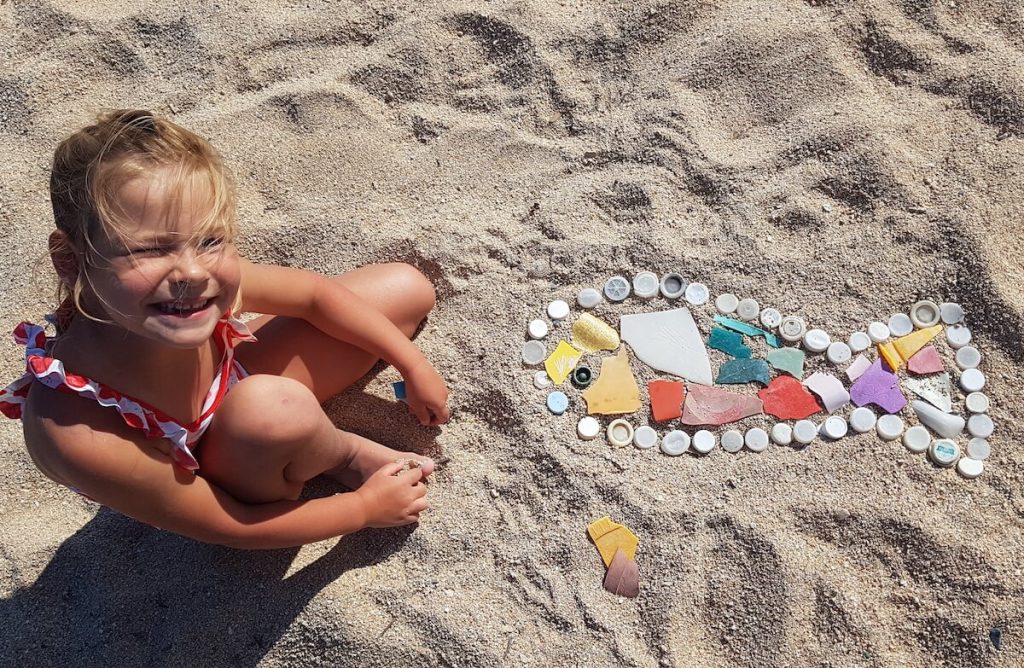Are young people key to fighting ocean plastic pollution in oceans?

By 2050, there may be more plastic in the ocean than fish, according to a report by the Ellen MacArthur Foundation, published in 2016. In light of the latest edition of Monaco Ocean Week, we met with two organisations involved in the fight against marine plastic pollution.
Rewind to five summers ago and that is where this whole project began. Pierre-Ange Giudicelli, a young Corsican concerned by this plastic crisis, decided to organise a kayaking trip around the l’Île de beauté, an island in the Mediterranean sea, with some friends, in order to pick up any rubbish littered along the coastline. What started as a simple campaign to raise awareness quickly evolved into a full-blown organisation: Mare Vivu. Their idea behind all of this was to help develop the science by collecting data on the ground. However, it was when they finally designed their first recycling machine that they found out the truth: “In France, only one percent of plastic waste is actually recycled to produce the same material again,” laments Pierre-Ange Giudicelli.
Recycling is an excuse for our system to keep producing more plastic

Would recycling plastic solve the problem?
“Recycling is an excuse for our system to keep producing more plastic, because the solution can be found way before we get to this step: we need to reduce our consumption.” Macroplastics are already causing a lot of problems in the Mediterranean, as marine mammals get strangled or suffocated by plastic waste and turtles end up tangled in fishing nets. Microplastics are no better for the environment either. Ranging in size from a few nanometres to 5mm, these small plastic particules are easily consumed by animals, such as prawns and fish, in the water. In other words, the very same animals that end up on our dinner plates!
>> READ ALSO: Could finance save the environment? In conversation with economist Nathalie Hilmi
Last week, Mare Vivu was chosen for the second time as a winner of the call for projects launched by Beyond plastic Med (BeMed): an organisation founded on the initiative of the Prince Albert II of Monaco Foundation, which supports many Mediterranean projects. “It remains essential that all countries in the region work together, creating an international dynamic, as a lot of the plastic waste we collect on Corsican shores has unfortunately been washed up here by Italian currents,” explains Pierre-Ange Giudicelli.
Will the next generation save the day?
Today, Mare Vivu goes into schools and colleges to raise awareness amongst younger people about this environmental problem. Describing these efforts as a “lever for action”, Pierre-Ange Giudicelli hopes to “provide the younger generation with all the keys for understanding.” In Monaco, Berit Legrand, is also of the opinion that to save the future of our planet we need to start with education. The founder of The Animal Fund, an organisation established in 2015, also hopes to share her involvement in the mission to protect the ocean and aquatic mammals. Her two sons have just launched their own brand of eco-friendly clothes, called R4. All of their products are wrapped with biodegradable materials, which can easily be dissolved in hot water, as opposed to the more commonly used plastic packaging.
The Covid-19 pandemic has significantly increased our plastic consumption

Masks, gloves and take-away food packaging: “the Covid-19 pandemic has significantly increased our plastic consumption,” notes Berit Legrand. “Countries should be punishing those who litter their masks in exactly the same way as they punish the people who don’t wear them.” Every year, more than eight million tonnes of plastic end up in our oceans. By 2040, the amount of plastic pollution could triple.
>> READ ALSO: Plastic Origins: how to clean the ocean with your smartphone









